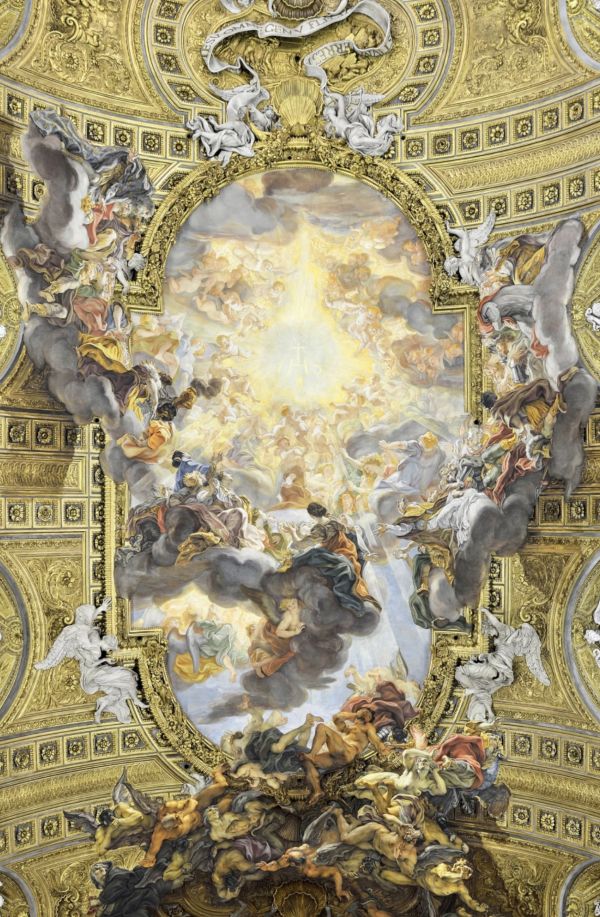Prayer of the sons: performance or Listening?
Mt 6:7-15 (v.13)
«When you pray, do not babble like the pagans, for they think they will be heard because of their wordiness» (Mt 6:7; cf. Lk 11:1).
The God of religions was named with an overabundance of high-sounding honorific epithets, as if he craved ever more numerous ranks of incensers.
The «Father» is not accompanied by prestigious titles. A child doesn’t address the parent as a very high, eternal and omnipotent, but the a reliable family Person who transmits life to him.
And the son doesn’t imagine that he has to offer external cries and acknowledgments: the Father looks at needs, not merits.
«Et ne nos inducas in tentationem»: ancient Prayer of the sons.
«Do not induce us [Lead us not into]» is (in the Latin and Greek sense: «until the end») an ancient Symbol of the ‘reborn in Christ’, in the experience of real life.
In religions there are clearly opposed demons and angels: disordered and dark powers, contrary to the bright and "right" ones.
But by dint of relegating the former, the worst continually resurface, until they win the game and spread.
In the lives of the saints we see these great women and men strangely always under temptation - because they disdain evil, therefore they do not know it.
Gradually, however, the little constant naggings becomes overwhelming crowds.
The persons of Faith do not act according to pre-established and superficial models, not even religious ones; they are aware that they are not heroes or paradigm phenomena.
That's why they rely on. They let intimate problems go by: understood its strength!
This is the meaning of the formula of the Our Father, in its original sense: «and lead us not into [the end of] temptation [trial] (because we know our weakness)».
If, on the other hand, our 'counterpart' becomes a protagonist, a one-sided pivot, a constant afterthought, and a block, we are done for.
Pain, failures, sadness, frustrations, weaknesses, a thousand anxieties, too many falls, accustom us to experience transgressions as part of ourselves: Condition to be evaluated, not "guilt" to be cut horizontally.
In the process of true salvific transmutation, that signal speaks of us: within a deviation or the eccentricity there is a secret or a knowledge to be found, for a ‘new personal birth’.
Looking at the discomforts and oppositions, we realize that these critical sides of being become like a malleable magma, which approaches our healing more quickly. As if through a permanent, radical conversion… because it involves and belongs to us; not in peripheral mode, but basically, of Seed and Nature.
Absorbed patterns and beliefs don’t allow us to understand that the passionate life is composed of opposing states, of competitive energies - which must not be disguised in order to be considered decent people.
Perceiving and integrating such depths, we lay down the idea and atmosphere of impending danger, devoid of further opportunity; only for death.
We become mature, without dissociation or hysterical states resulting from contrived identifications, nor disesteem for an important part of us.
In short, straits and "crosses" have something to tell us.
They shake the soul to the root, sweep away the absorbed masks, ignite the person, and save the life.
In this way, inconveniences and anxieties help us. They hide capabilities and possibilities that we do not yet see.
In the virtue of the shaky yet unique exceptionality for each person, here is the true journey opening up.
Path of the Father and of the heart, Way that wants to guide us to alternative trajectories, new dimensions of existence.
The difference of the Faith, compared to ancient religiosity [in the sense of the ‘Cross-inside’]?
It’s in the consciousness that only the sick heal, only the incomplete grow.
Only the halting women and men regain expression, evolve. And falling, they snap forward.
[Thursday 11th week in O.T. June 20, 2024]












